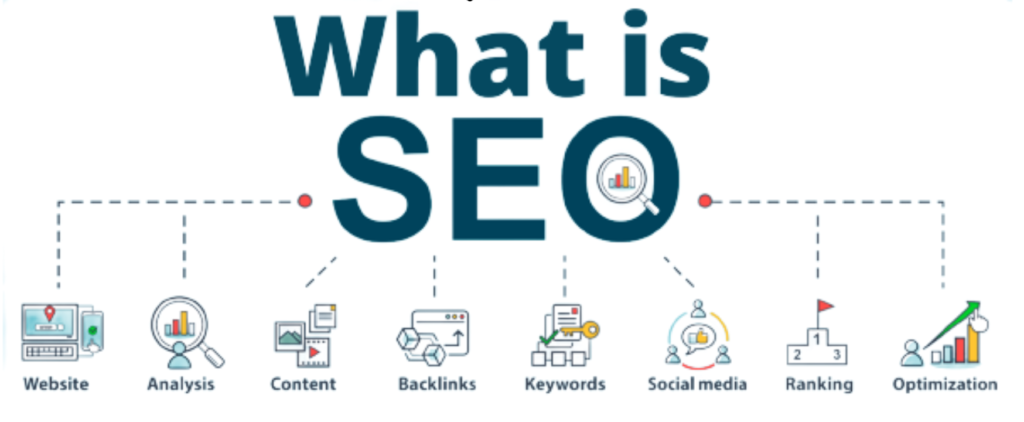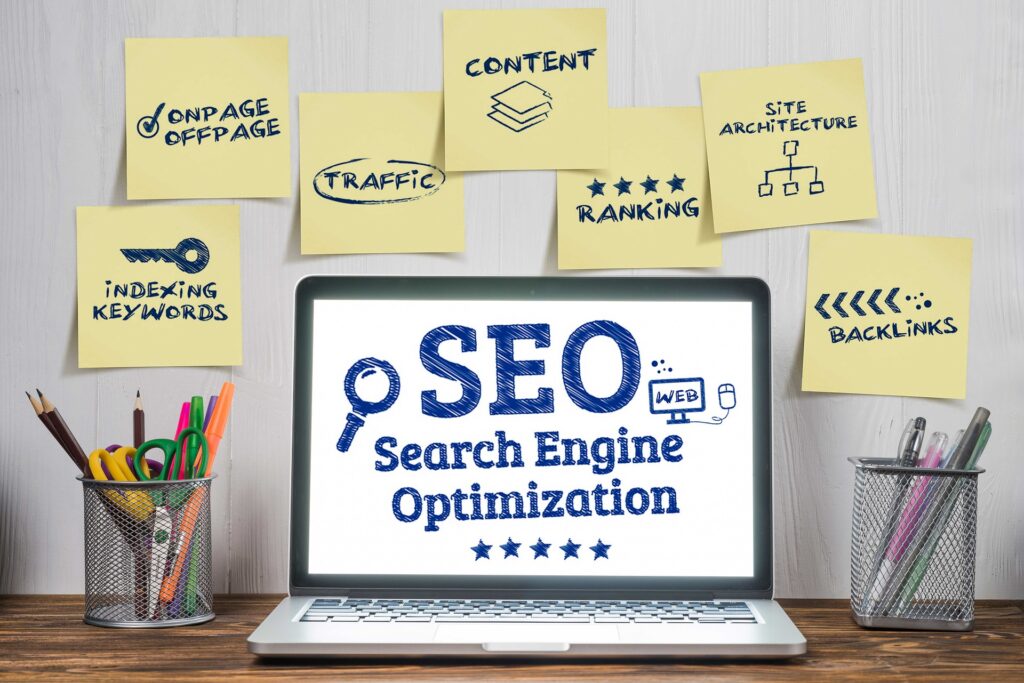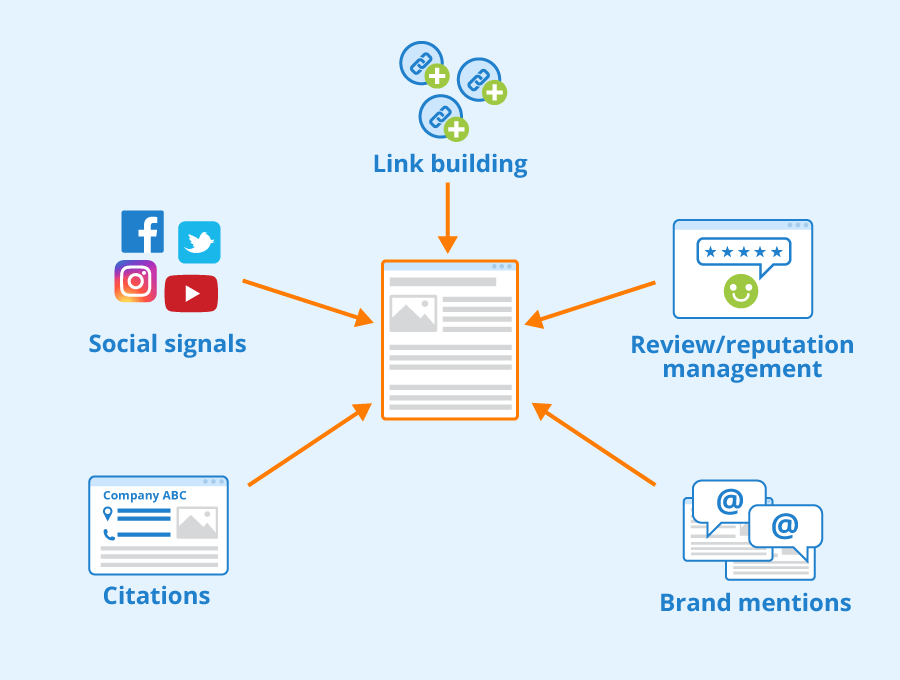
Is it frustrating that no matter what you do, if your website fails to rise in the search engine rankings ? If this is the case, your website may not be properly designed for search engines to boost your ranks. There are several key aspects that influence how web pages are ranked. These elements are known as Search Engine Optimization (SEO) tactics, and they can make a huge impact on your site’s ranks.
Here are some of the most essential characteristics that search engines consider when ranking you:
1. The Content of the Website
One of the most significant components for successful search engine optimization is the content on your website. Your website should provide useful information on specific topics related to your business. It is observed that your content should also be regularly updated on a regular basis on your website/blog site. It’s not enough to build a website with a few content pages full of information and then never update it. If done correctly, this is a constant process that will boost your search engine results.
It’s also crucial not to try to deceive the search engines by flooding them with many copies of the same page, all with identical information. This will not improve your rankings and will eventually result in your website being banned from search engines.

2. The popularity of the link
For attaining high search engine rankings, inbound links are crucial. Most search engines now consider link popularity to be one of the most important factors in your website’s ranking.
Here are some of the most effective methods for obtaining inbound links:
- Articles – Writing and uploading articles to websites and article listing directories is an excellent approach to obtaining inbound connections.
- Content – Adding excellent content will not only boost your rankings but will also help your link’s popularity. Because your site is important to them and their visitors, other webmasters will want to link to it.
- Directories – Listing your site to web directories will improve the acquisition of inbound links.
- Blogs – Create a blog that you update regularly with information relevant to the speciality of your website. Then, from the blog, include a link to your website. To gain even more inbound connections, you can submit your blog to several blog directories.
- Link Exchanges – Find other high-quality websites that are connected to yours and ask them to link to you in exchange for a link back to them. This isn’t as effective as it once was, but it’s still a viable option for obtaining inbound connections.
Remember that the more inbound links you get, the better, but quality always wins out over quantity when it comes to link popularity. Avoid low-quality sites, FFAs, and sites that are unrelated to yours.
The on-page and off-page factors should be examined next when practising SEO strategies for your website. The title tag, Meta tags, header tags, ALT tags, and bold text highlighting are all examples of on-page elements. The link text is a crucial off-page component.
Components for On-Page SEO:

3. Meta Tags and Title Tags
Meta tags are used to describe the page on which they are used. Though Meta tags are no longer as crucial as they once were, and are certainly not the only factors that search engines consider when indexing your site, they do play a role in determining the page’s relevance for a keyword search.
To establish the relevancy of a website for a given search phrase, search engines look at three primary tags. The title tag, meta keywords, and meta description are all important.
The title tags should ideally be less than 64 characters long and contain your most significant keywords. They should also be related to the page’s content. Keep keywords out of the title tag!
The Meta description tag serves as a summary of the page’s content. This Meta tag should be 200 characters or less and contain the keywords and phrases you want to be found for, but it should also seem like an introductory lead-in to the page and appeal to the reader. The page description you present must persuade the visitor that they have discovered exactly what they were looking for.
The keyword tag is perhaps the least relevant Meta tag for search engines. It should not, however, be overlooked. Keyword tags should have a maximum length of 1000 characters. This tag should include essential words and phrases that are consistent with the page’s body text, title, and content. Use keywords and key phrases that are specific and accurate in this tag. Again, do not stuff keywords here… they should only be those that are on the page, and no word should be repeated more than three times.
4. Tags for headings
The header tags take precedence over the regular text. The H tag bears greater weight the higher it is. Heading tags should be used to highlight essential keywords and headings on your website, as well as paragraph headers.
5. Bold Text
The bold text seemed to have more impact than regular text, but not quite as much as heading tags. While some of your key phrases show on the page, make sure to wrap them in bold tags.
6. Alt Text
When images cannot be displayed, the alt tag provides alternate text. This can happen if people have their browsers set to only download text and not visuals, or if the images are too large for the user’s internet connection to handle. Do not pack keywords into them; only include crucial keywords relevant to your site and the image.
Off-Page features include:

7. Text to Link
This is a crucial aspect of search engine optimization in order to achieve higher ranks. The link text can appear on your site’s pages or on other websites that link to you. It matters in any case. Instead of merely the URL, the major search phrase for the target page should be included in the link text if possible. Use different link text for each link, but include the primary keywords from the target page in the link text. When the language surrounding a link is relevant to the target page’s keywords and phrases, it carries more weight.
In the End:
In My personal view, implementing the above SEO advice will significantly improve your search engine rankings. Keep in mind that search engines are always improving. Don’t try to fool them; they’ll figure it out eventually, and your website could be shut down. If you follow the simple strategies outlined above, you will see a boost in your search engine ranks without the risk of getting blacklisted or dropped.